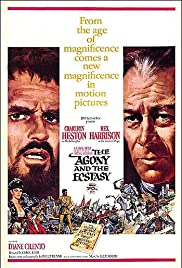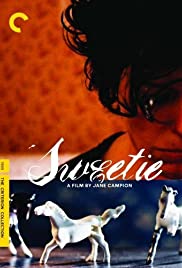Search

Hong Kong, 1960s. Zhang, a shy tailor’s assistant, is riveted by his imperious client Miss Hua. Upon meeting her, she seduces him to make sure he will truly remember her when designing her garments. After this intimate first encounter, a rapport develops between the two. Entry is for the theatrically released extended version, not the segment from the Eros anthology.

After their teacher fails them, two high school students decide to teach the imperious, demanding instructor a lesson by falsely accusing her of the murder of a missing student.

Jakob arrives at the Institute Benjamenta (run by brother and sister Johannes and Lisa Benjamenta) to learn to become a servant. With seven other men, he studies under Lisa: absurd lessons of movement, drawing circles, and servility. He asks for a better room. No other students arrive and none leave for employment. Johannes is unhappy, imperious, and detached from the school’s operation. Lisa is beautiful, at first tightly controlled, then on the verge of breakdown. There’s a whiff of incest. Jakob is drawn to Lisa, and perhaps she to him. As winter sets in, she becomes catatonic. Things get worse; Johannes notes that all this has happened since Jakob came. Is there any cause and effect?

Colonial tea planter John Wiley (Peter Finch), visiting England at the end of World War II, wins and weds lovely English rose Ruth (Dame Elizabeth Taylor) and takes her home to Elephant Walk, Ceylon, where the local elephants have a grudge against the plantation. Ruth’s delight with the tropical wealth and luxury of her new home is tempered by isolation as the only white woman in the district; her husband’s occasional imperious arrogance; a mutual physical attraction with plantation manager Dick Carver (Dana Andrews), and the hovering, ominous menace of the hostile elephants.

In this classic drama, Vicky Page is an aspiring ballerina torn between her dedication to dance and her desire to love. While her imperious instructor, Boris Lermontov, urges to her to forget anything but ballet, Vicky begins to fall for the charming young composer Julian Craster. Eventually Vicky, under great emotional stress, must choose to pursue either her art or her romance, a decision that carries serious consequences.

Charlton Heston stars as Renaissance artist Michelangelo di Lodovico Buonarroti Simoni (6 March 1475 – 18 February 1564), who begrudgingly paints the Sistine Chapel for imperious Pope Julius II in this epic adaptation of Irvine Stone’s novel directed by Carol Reed. While the novel covers Michelangelo’s life from birth to death, the film focuses on the battle of wills between the perfectionist artist and the impatient Pope who commissions (and eventually commands) him to paint the famed chapel.

Explores sisters, in their twenties, their parents, and family dysfunctions. Kay is gangly and slightly askew, consulting a fortune teller and then falling in love with a man because of a mole on his face and a lock of hair; then, falling out of love when he plants a tree in their yard. Sweetie is plump, imperious, self-centered, and seriously mentally ill. The parents see none of the illness, seeing only their cute child. Kay mainly feels exasperation at her sister’s impositions. Slowly, the film exposes how the roots of Sweetie’s illness have choked Kay’s own development. Can she be released?

After rich businessman Paul Greco (popular daytime star Jon Lindstrom) retires early, his imperious sister Elise (two-time Emmy Award® nominee Wendie Malick) tries to get him to settle down with the woman of her choosing. But Paul seems more interested in developing his friendship with Andy (cutie Chris Murrah), a charming gay man he meets at a dog park.

Professor Lawrence Wetherhold (Dennis Quaid) might be imperiously brilliant, monumentally self-possessed and an intellectual giant — but when it comes to solving the conundrums of love and family, he’s as downright flummoxed as the next guy.